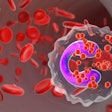
In a major shift from traditional asthma management, a new set of national recommendations encourages children with asthma to engage in regular physical activity. The recommendations are outlined in the study, “Comprehensive Exercise Recommendation for Pediatric Asthma: An Evidence Synthesis,” recently published in World Journal of Pediatrics.
Developed by a team of 17 experts from across China and led by the National Clinical Research Center for Child Health, the guidelines aim to dispel long-standing fears about exercise-induced asthma attacks and promote individualized exercise plans as part of comprehensive asthma care.
The recommendations, which are based on a review of 64 studies and two rounds of expert consensus using the Delphi method, emphasize that exercise is not only safe for children with well-controlled asthma but also beneficial. The report outlines nine core domains, including exercise safety, prescription design, monitoring and management of exercise-induced bronchoconstriction (EIB).
According to the study’s authors, exercise has long been viewed as a trigger for asthma symptoms, but the evidence now shows that with proper planning and medication, it can significantly improve lung function, mental health and overall quality of life.
The guidelines provide detailed advice on tailoring exercise programs based on a child’s asthma control status, physical fitness and environmental factors. Additionally, the guidelines recommend using inhaled corticosteroids and short-acting β2-agonists to prevent EIB and stress the importance of monitoring air quality during outdoor activities.
The expert panel, which included pediatric pulmonologists, respiratory nurses, sports medicine specialists and an epidemiologist, reviewed more than 13,000 studies before narrowing down to the most relevant evidence. The group’s work has been registered on the web-based repository, the International Practice Guideline Registry Platform (PREPARE-2024CN1243).
The authors encouraged clinicians and caregivers to integrate these recommendations into asthma management plans to help children lead active and healthy lives. Additionally, the authors called for further research to refine exercise protocols and assess long-term outcomes.























